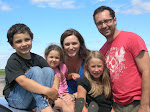KANATA, Ontario, July 18, 2008
One of the long-term effects of music lessons is that it appears to sharpen young minds, making children quick-witted and mentally coordinated, according to research by Manchester University.
Music can encourage young children to be physically active but can also persuade them to sit down and listen quietly. If you have a very active 3 year old son or daughter in a Music for Young Children class, you will notice they do learn self-restraint. They learn to sit down and perform a task instead of running around and being disruptive and they learn to focus on learning activities for longer periods.
The interaction in a Music for Young Children class is very important and the use of puppets and props emphasizes interactivity, playing and having fun.
One of the things about human nature that sets us apart from many animals is our relentless curiosity of our pursuit of new sensations and stimuli. We have a huge degree of intellectual and artistic curiosity and an appetite for new sights, sounds, tastes and smells. We are hungry for new stimuli because it provides the key to our personal mental growth and development. Music satisfies many of these interests and is in itself a tool for psychological and physiological development.
“Since both my daughters were 5 years old they have been enrolled in Ms. Balodis' Program 'Music for Young Children'. As both a professional musician and teacher (I teach composition and orchestration at the post secondary level, and I am Technical Co-ordinator for the Royal Conservatory of Music and the Glenn Gould School), I can testify that Ms. Balodis' program is excellent for young children. My children have learned the fundamentals of musicianship and composition while having fun. I was always amazed that when I asked my children when they started at MYC "What did you learn in day's lesson?" they responded with "Nothing ... we just played games." When I queried further I found out that through game playing they learned about pitch, rhythm, melody, dynamics and the basics of composition (thematic development). At a very young age my children not only learned how to compose music and write out their compositions, they learned about the importance of copyrighting one's material... now that is through a music course!” Gary Atkins, Technology Co-ordinator The Royal Conservatory of Music/The Glenn Gould School Teacher/The Trebas Institute.
Celebrating its 28th anniversary, Music for Young Children has been among the world’s leading music-learning systems. Children start at ages 4-10 years in group keyboard lessons. The classes are highly structured and follow a carefully worked-out series of increasing complexities. The hour-long classes include rhythm ensembles, singing, ear-training, sight-reading, note-reading, theory and composing techniques.


